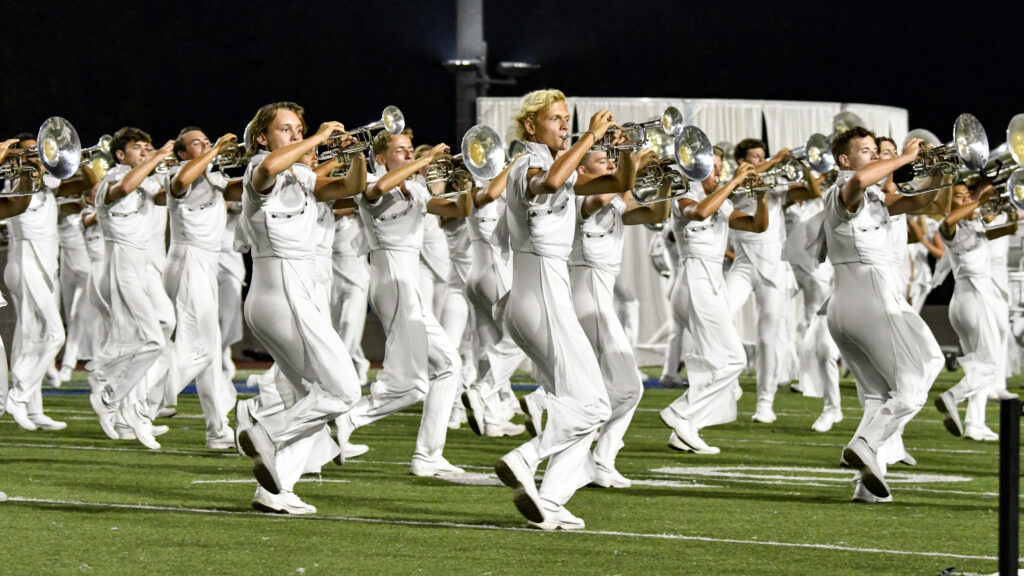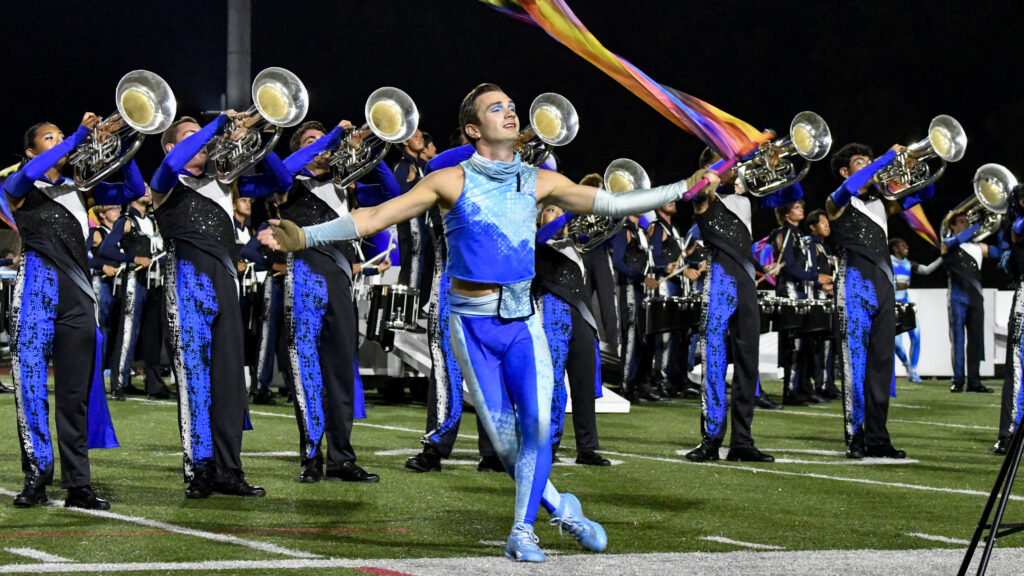Bristol, R.I., is relatively famous on drum corps tour. It’s known for the Lobster Pot, a local seafood restaurant where judges, event organizers and corps staffs gather after the show for a huge, gastronomically inspired celebration of drum corps. It’s known for the stands that line only one side of the football field, and are always packed to bursting on show night. And it’s known for its Fourth of July parade, the oldest continuously-running Fourth of July parade in the country. You think you’ve seen Fourth of July celebrations? Oh, no, you haven’t seen a parade until you’ve seen Bristol put on a parade. In most places, people sit on the side of the roads in their lawn chairs or on blankets, coolers and the backs of pickup trucks, but in Bristol everyone stands for a parade. They have to – they’re too busy dancing to whatever you’re playing, even if it’s “Stars and Strips Forever” or “Washington Post March,” to sit down. Parades are community events in Bristol.

And good luck finding anyone anywhere else in town when Bristol throws a parade. The whole town turns out, and there are no thin spots in the crowd along the entire route, which runs the length of town and then back a bit (those Rhode Islanders, they just can’t get enough of their parade). It’s definitely an event not to be missed under any circumstances. Any circumstances. Including, as I found out first-hand two summer ago, adverse weather conditions. July 4, 2004, started out sunny and clear; the only clouds in the sky were the white, fleecy kind that are typical for summer afternoons. As the Glassmen arrived at the warm-up and staging area, the sky started to cloud over, and I remember only grabbing my rain jacket on a last-second impulse. I almost took it back to the bus, in fact. I was very glad, as the day wore on, that I hadn’t. The sky continued to grow overcast during the hour or so that it took to warm up and line up. As a couple of large drops fell, a member meandered over to where Rod Owens, Glassmen’s tour director, and I were standing. “D’you think they’ll cancel the parade?” she wondered aloud. Rod winked at me. “Well, they’ve been running this thing for a couple hundred years straight now,” he told her, “so no, I don’t think we have to worry about it getting cancelled.” The raindrops continued to fall intermittently as we worked our way up to the line, but of course it didn’t start raining in earnest until literally within seconds of when the Glassmen tapped off and stepped onto the route. It was as if our entry into the parade was a signal, and within about 60 seconds, it wasn’t just raining – it was pouring. It rained so hard, I could barely see five feet in front of me; I wasn’t walking alongside the corps, I was sloshing through the river running down the edge of the street. And just when I thought it couldn’t rain any harder, the skies opened again and the monsoon that had been waiting in the wings burst forth. We were all drenched to the skin – even those of us lucky enough to be wearing rain jackets – in very short order. Still, we marched gamely on. But an amazing thing happened. Those famous, crazy Bristol crowds didn’t melt away in the rain. At any other parade, the crowd would have started packing up at the first shadow of a cloud against the sun, and the key would be turning in the ignition by the time the second drop hit the ground. But here, people stayed; in fact, they cheered even harder than usual. The party was no longer a question of patriotism – it was a matter of pride, and dang it, if we were going to march, they were going to stay and cheer us on. We were soaked, they were soaked, but it didn’t matter. Every one of us was having a great time regardless. I used to not like parades. Even when I was a kid, I couldn’t understand what the big deal was, and the older I’ve gotten, the more I’ve viewed parades as a waste of time and sweat. When I was marching, both in band and in a drum corps, I positively loathed parades as painful, time consuming and boring. But the experience in Bristol last year was not so much a parade as it was a giant communal sprinkler party, and it’s caused me to rethink my position. Maybe I don’t love parades now, but I’m a lot more inclined to tolerate them and maybe, maybe even enjoy them. Especially if they take place in Bristol, in the driving rain.
Emily Tannert is a music education/percussion performance major at the University of Texas in Austin, Texas, and holds a journalism degree from Northwestern University. Emily graduated from the Glassmen in 2003 and was assistant tour manager for the corps in 2004 and 2005. You can contact Emily at [email protected].





